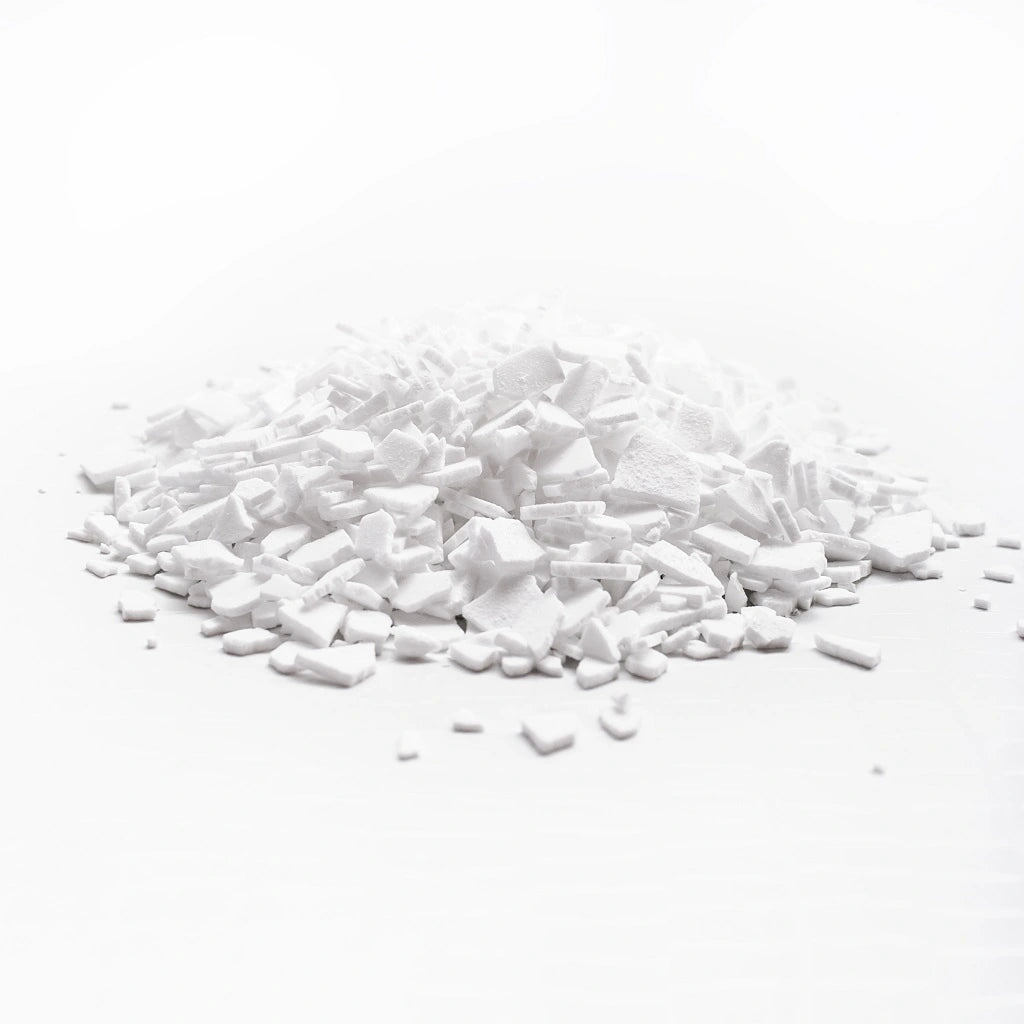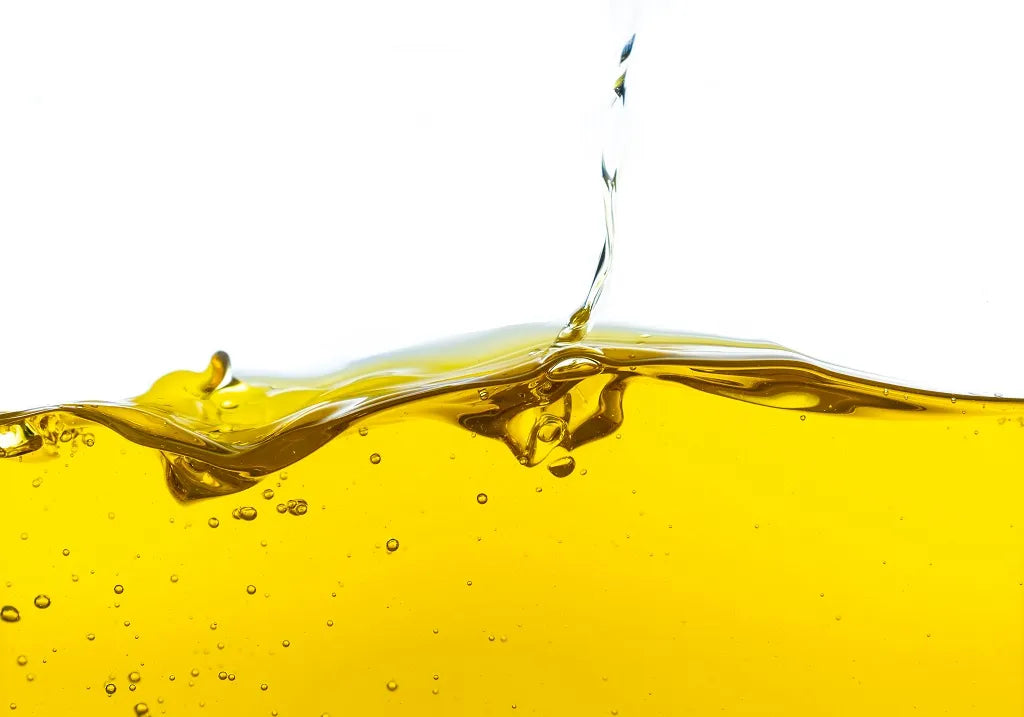Our haircare experts often advise us to steer clear of hair products with alcohol as it can dry out the tresses. But all alcohols cannot be labeled as bad or drying. That's why you might have noticed the term 'Cetearyl alcohol' frequently popping up in the INCI list of many haircare products. Certain alcohols can indeed be the primary cause of hair dryness and frizz; however, a few like Cetearyl alcohol, aid in conditioning the hair.
Short-chain alcohols such as ethanol, propanol, and propyl alcohol cause dryness, while fatty or long-chain alcohols such as Cetearyl alcohol for hair, and lauryl alcohol act as an emollient, keeping the mane conditioned and hydrated.
People with curly hair have a hard time trying to retain moisture in their curls. Curly hair isn't easy to manage, so we've created the following guidelines to assist in learning which alcohols are good for the hair and the role of Cetearyl alcohol in hair care products.
What is cetearyl alcohol?
Cetearyl alcohol is a fatty alcohol that is found in cosmetic products. This white-colored substance is a blend of cetyl alcohol and stearyl alcohol, both of which are fatty alcohols. It is commonly found in plants such as palm oil and coconut oil.
This fatty alcohol is the main ingredient in many skincare, haircare, and personal care products. In beauty products, Cetearyl alcohol improves the consistency of the products and assists in creating more stable foam-based products. It also acts as an emulsifying agent in cosmetic products.
Fatty alcohols are often referred to as long-chain alcohols due to their chemical formula. Fatty alcohols generally contain an even number of carbon atoms. Only one alcohol group (-OH) is connected to the final carbon.
Cetearyl alcohol may also appear in the following nomenclature in your haircare products:
- Alcohols C1618
- Cetostearyl alcohol
- C16-18 alcohols
- (C16-C18) alkyl alcohol
- Cetyl/stearyl alcohol
Benefits of cetearyl alcohol for hair
According to experts, Cetearyl alcohol in hair care products isn't used for its actual haircare benefits, but rather for the composition and function of the entire product.
1. Protects products from separating in the formula
Cetearyl alcohol is primarily used as an emulsifier in products. It stabilizes formulas so they don't separate and can be applied cosmetically.
2. Encourages even application
It keeps the product from separating and thereby encourages even application. It helps in proper distribution of the product on the hair or skin which in turn increases its effectiveness.
3. Thickens the formulas
It is used in hair care products as a thickening agent to improve the texture and appearance of the tresses.
4. Keeps your strands hydrated
Cetearyl alcohol is a fatty alcohol that is derived from oils, hence it exhibits emollient properties which keeps the strands hydrated for a longer time, leaving them soft and smooth. The long chain of carbon atoms in the fatty alcohol traps the water molecule, and restores the hydration level of your hair.
How to use cetearyl alcohol for hair?
As mentioned before Cetearyl alcohol is a fatty alcohol that is used as an emollient, thickening agent, and emulsifier in hair care products. It is used in to give stability to the formula and to enhance the texture and feel of the product. This ingredient has gained popularity and can be seen in most shampoos, conditioners, hair creams, hair mousses, etc. This fatty alcohol does not dry the hair; making it ideal for daily use. Considering it’s derived from natural components it is non-toxic and can be safely used on your hair. This non-drying fatty alcohol improves the hydration level of the strands whilst reducing frizz, and thus smoothens the hair’s texture.
Other ingredients it is compatible with
Cetearyl alcohol works well with most emulsifiers as well as other hair care ingredients. However, Cetearyl alcohol should not be used in conjugation with Ceteareth-20 as it is comedogenic and can clog the pores.
Side effects of cetearyl alcohol for hair
Most alcohols can cause hair and scalp drying, so it is best to avoid them. Drying alcohols evaporate quickly and allow products to dry quicker. It is impossible to make hair sprays without it. According to experts, fatty alcohols such as Cetearyl alcohol have properties that are extremely beneficial for hair and scalp.
The hydrating, moisturizing, and smoothening properties of Cetearyl alcohol for hair make it a highly appreciated haircare ingredient, especially in the curly hair community. Cetearyl alcohol makes your hair soft, smooth, and frizz-free, while adding manageability to unruly hair. This is why conditioners and hair products contain a hydrating fatty acid.
All alcohols are not bad for your hair. It depends on the type of alcohol that you are using. Short-chain alcohol can dry out your hair and scalp, whereas on contrary fatty acid alcohols can have a hydrating effect on your hair. So always keep an eye on the ingredient list, whenever you choose a shampoo and conditioner.
Those who are blessed with curls, waves, and coils should be all the more careful with their choice of hair care products because many ingredients can trigger textured hair to become dry and frizzy. Alcohols are particularly bad for curly hair, so always be on the lookout for hydrating surfactants and alcohols. Curlvana products have been formulated with ingredients that are scientifically proven to benefit curly and textured hair.
Also Read :
All the content published on www.Curlvana.in is solely for information purposes. It is not a substitute for professional medical advice, diagnosis, or treatment. Always consider seeking the advice of your physician or a qualified health care provider. The information, suggestion, or remedies mentioned on this site are provided without warranty of any kind, whether express or implied.





